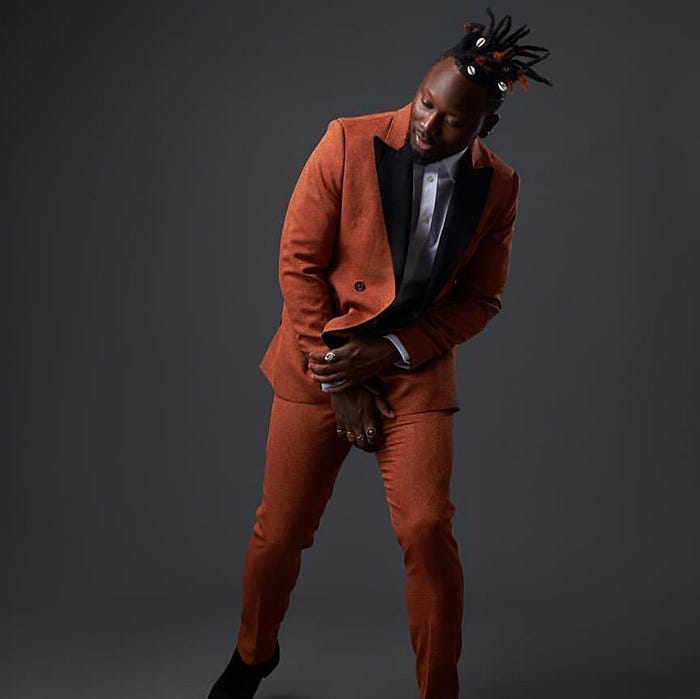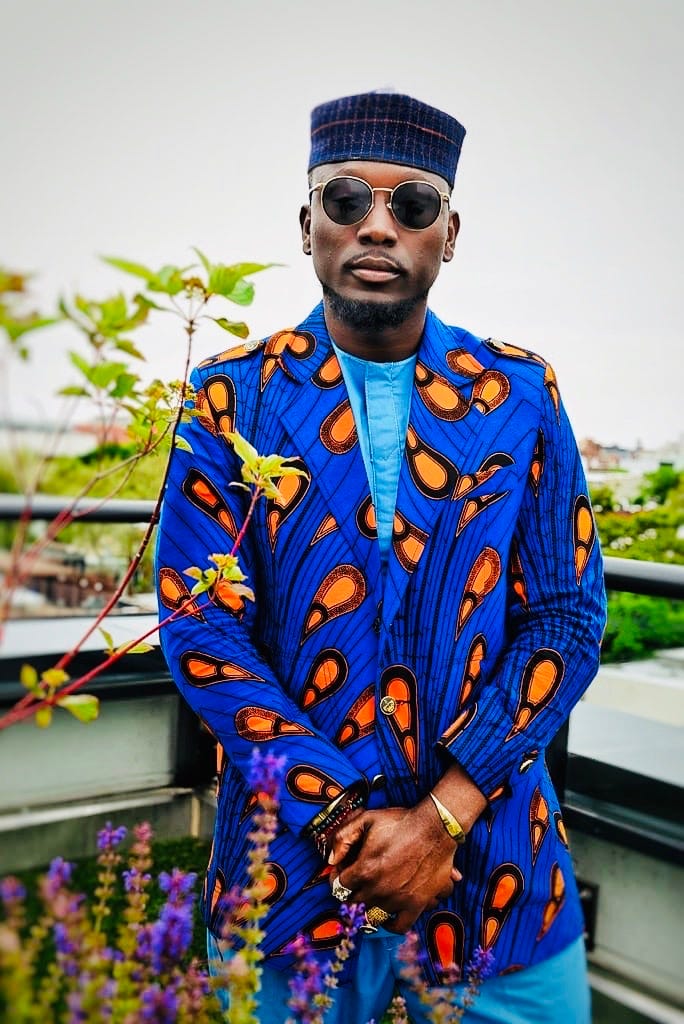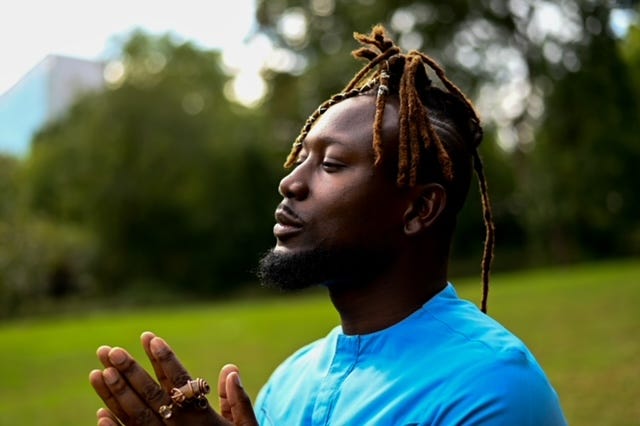
The African artist recently answered a few questions for an exclusive interview with BALDWIN. Special thanks to our editorial assistant Diamond for facilitating the space and creating the opportunity. DeSean Johnson reports
Ayoinmotion is an artist’s artist. The work is the priority, and that’s evident through the attachment his fans have with the art. Below, he answers a series of questions for BALDWIN ranging from craft, to politics. He’s an artist with something to say and it’s much deeper than what you might expect.
How much has African folklore influenced your music, and how do you incorporate the culture into your visuals?
While African and specifically Yoruba folklore is not the core of my music, it’s forever embedded in the way a thread is part of a fabric. I am an artist who is heavily influenced by his culture, heritage and life experiences. The video for my new single, Omi, reflects this reality in the color, styling, storytelling and reference to Yemoja, who is the Yoruba goddess of water. It has been an opportunity to introduce many who are unfamiliar, yet curious and captivated. In the case of Omí, connecting water with Yoruba divinity was intentional and happened in organic alignment.
What’s been the biggest business lesson you’ve learned thus far in your career? To provide context, we specifically want to know about contracts, distribution, management, or marketing.
The biggest lesson I have learned as an artist is to not settle for less than you’re worth and to not need external validation to determine said worth. Things changed for me when I started making sure that my art remunerated me and not equating validation to value. I often say people value art but not always the artist, but both come hand in hand, so it’s important that you nourish yourself as much as you nourish your art instead of assuming others will do it for you. Now let me be clear, it sometimes happens in stages. Value is usually reflected in money, BUT NOT ALWAYS. Value is value, so don’t be narrow minded in seeing that. As far as contracts and agreements, be clear from the beginning with your collaborators or at least very early on and don’t think it will kill the creative process. It’s helpful, gives clearer direction and even more freedom of mind for all involved which in turns benefits what is created.

As far as management and the whole having a team thing, I learned the hard way that it can be overrated. Don’t have a manager for the sake of having a manager. Make sure they bring value to your direction and that they care about being the best manager as much as you care about being the best artist. Iron sharpens iron. Focus on what you can improve, which is yourself, and don’t let waiting on having the right team or opportunity limit your progression.
How much of your work is political? And if not, what is your personal stance on politics? To provide more context, we specifically want to know about your experience with American politics and the impact it has had on you as an African artist.
I can’t say what exact percentage of my work is political, but even when it is, it is wrapped up in what I call social commentary. Art should reflect the times, but it can also shape it. I care about change and social impact, so it can’t be divorced from my work. As it relates to American history, as an African and Black person who doesn’t make a distinction between both, it’s important to address the inequities that are very much woven into the fabric of this country’s origin and the existence of many people who look like me around the world. However, I am not monolithic as an artist and seek to be holistic in the robustness of it all be it politics, history, colors, or culture. Whatever it is, I am a storyteller, and being a wordsmith is my most potent medium.

Every artist has an artist they’ve admired and looked up to, but we want to know about your country — what inspires you the most about the land, the people, the feeling, the air?
Culture is an all-encompassing word to me and feels fitting in answering this question. In culture, you find tradition, history, feeling, music, fashion and the list goes on. Culture directs and shapes me.
Because artists — especially independent artists, are using their platforms to bring about change, what are you hoping to change, using your music as a catalyst for?
Impact is my central goal. Positive impact to be more specific, so I don’t like to limit what change could be to one arena. Holistic change because it’s not just our physical. Our mental health plays a big part as well. I see power in our unity and hope that we can increasingly translate that into tangible change in who we choose to select in representing us and championing our interests across the board. And this isn’t just about politics, but if I were to use that as an example, it’s about to be 2022 and there are still no tangible laws on voting rights or police brutality, and despite a whole global pandemic, housing and health inequity remains drastically high for people of color, especially Black people. It’s asinine.

